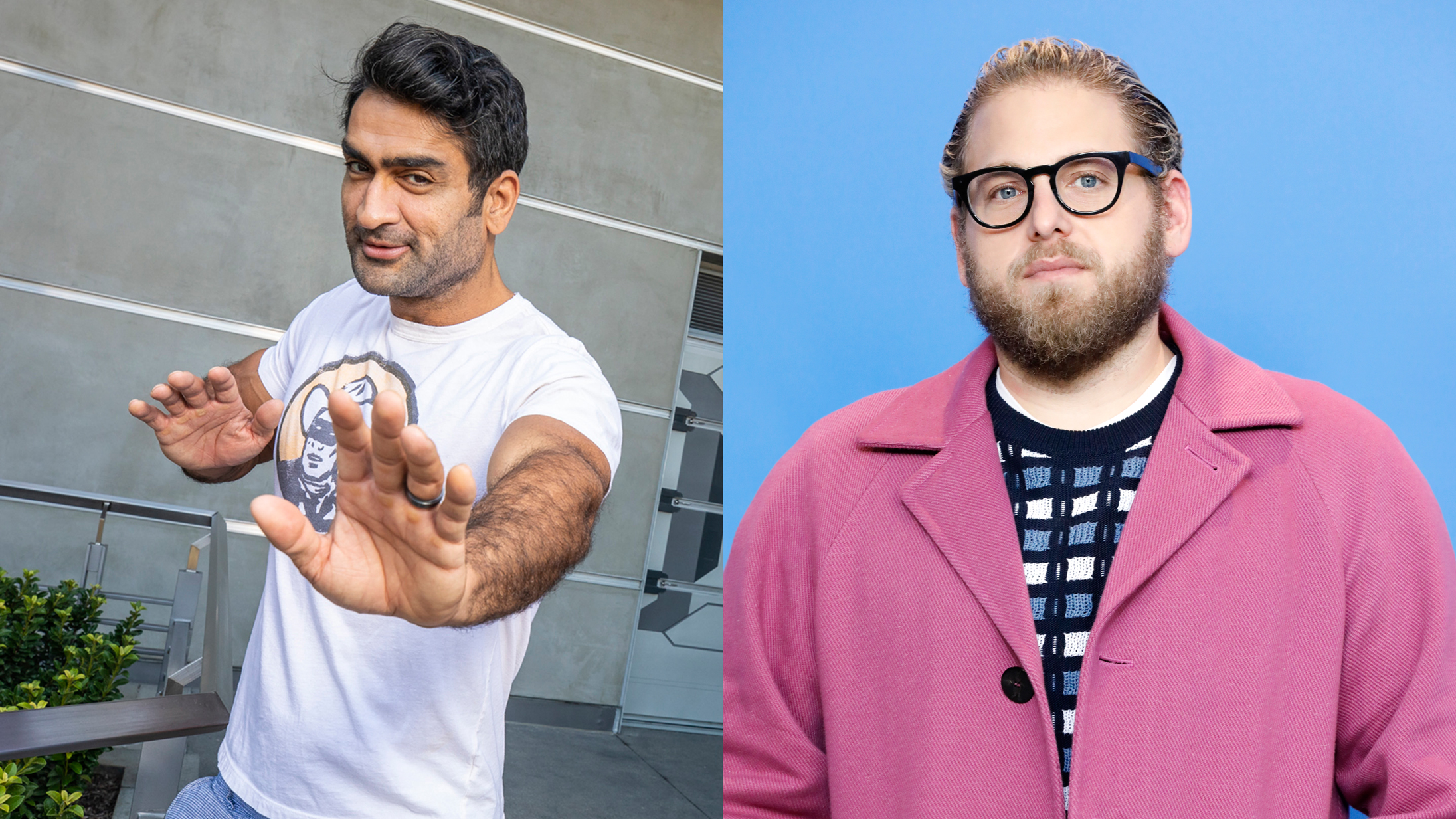Why Jonah Hill and Kumail Nanjiani are sick of online body shaming
Hollywood stars Jonah Hill and Kumail Nanjiani are highlighting the dangers of online comments about body image


Start your week with achievable workout ideas, health tips and wellbeing advice in your inbox.
You are now subscribed
Your newsletter sign-up was successful
Jonah Hill is no stranger to headlines about his health, both positive and negative. Achieving stardom in 2007's Superbad, the comedy actor's figure has chronicled, scrutinised and mocked by the press and online trolls ever since.
Hill's been dogged by paparazzi photos and online comments throughout his 14-year career, and even positive comments about his body, although presumably well-meaning, force Hill to focus on his imperfections. Recently getting a tattoo with the words "body love", Hill recently took to Instagram to set new boundaries with fans and followers.
"I know you mean well but I kindly ask that you not comment on my body,” he wrote on his IG page. “Good or bad I want to politely let you know it’s not helpful and doesn’t feel good.”
A post shared by Jonah Hill (@jonahhill)
A photo posted by on
Kumail Nanjiani has the same problem. After getting cast in Marvel's new Eternals movie, Nanjiani overhauled his body, eating clean and training hard, using both the best exercises for weight loss to get shredded and dedicated weight training to pump himself up. When he revealed his new physique to the world, it broke the internet – but the reaction was mixed, with some continuing to mock his new look and accusing him of using steroids as part of the body transformation.
In a recent interview with Vulture, Nanjiani began speaking out about how getting the body he always wanted did not provide the satisfaction he was expecting it to. Thanks to the barrage of opinions and conversation about him online, he felt as under the microscope as he did as an insecure teenager.
“The way I look has been way too important to me,” Nanjiani revealed to Vulture. “And so to hear a bunch of people reaffirming my own darkest thoughts about myself was very difficult.”
A post shared by Kumail Nanjiani (@kumailn)
A photo posted by on
Body image issues stemming from social media isn't a problem reserved for the super-famous. A collection of studies by King University found social media can exacerbate eating disorders and cause people to dwell on their physical appearance. Research from UNSW in Sydney found "young women who spend more time on Facebook may feel more concerned about their body because they compare their appearance to others (especially to peers)."
Start your week with achievable workout ideas, health tips and wellbeing advice in your inbox.
The end result is a distorted image of what it means to be healthy, that nothing is ever enough, and those who don't conform to these standards aren't as valuable. You don't have to be a celebrity to feel scrutinised and belittled, or to compare yourself to other people you see on your Instagram feed.
Our take? We all need to be kind to each other online, and change how we look at health. Walking to lose weight is just as legitimate a workout as a dynamic HIIT session, and learning to eat healthily means doing so in a sensible, sustainable, well-rounded way, allowing for the things you really enjoy without over-indulging.
Taking steps to be healthy and happy is more important than looking good to please anonymous people behind social media accounts. A true, holistic approach to health means taking into account mental as well as physical well-being.
Matt Evans is an experienced health and fitness journalist and is currently Fitness and Wellbeing Editor at TechRadar, covering all things exercise and nutrition on Fit&Well's tech-focused sister site. Matt originally discovered exercise through martial arts: he holds a black belt in Karate and remains a keen runner, gym-goer, and infrequent yogi. His top fitness tip? Stretch.
